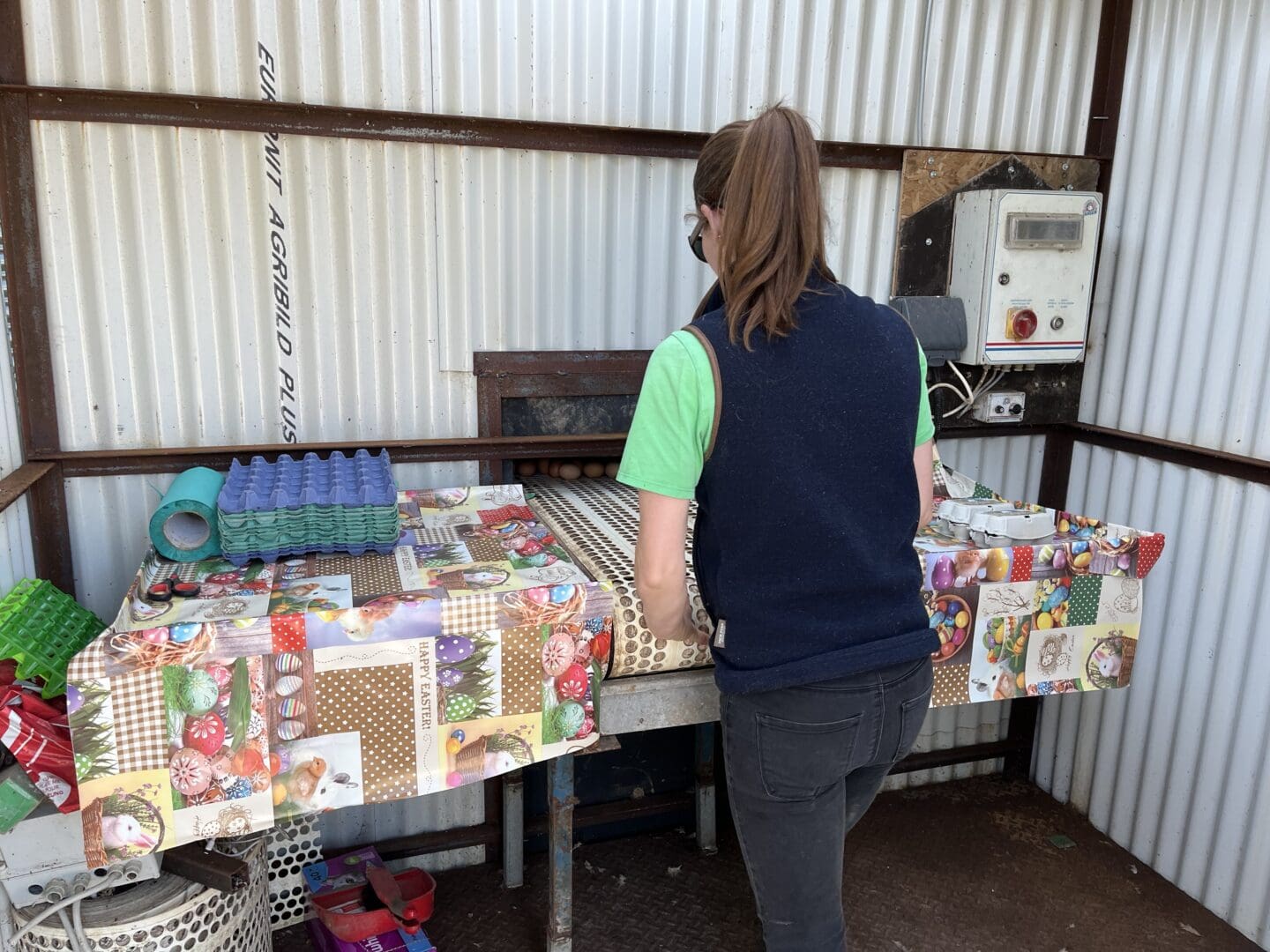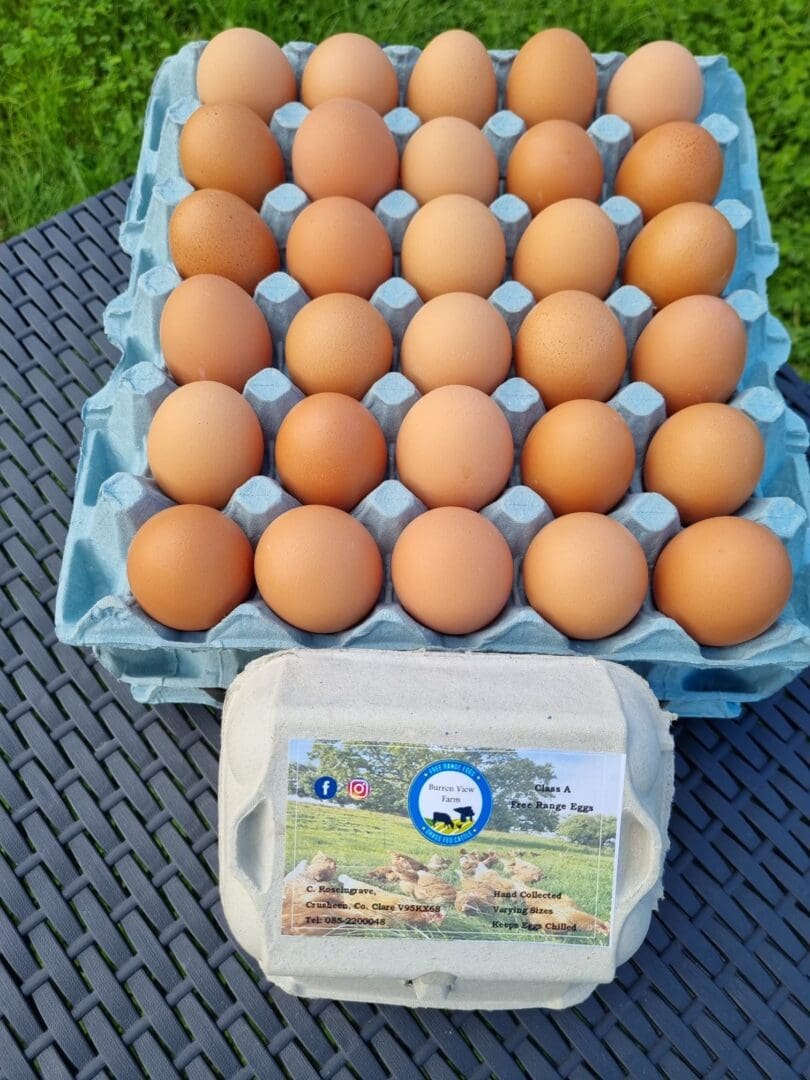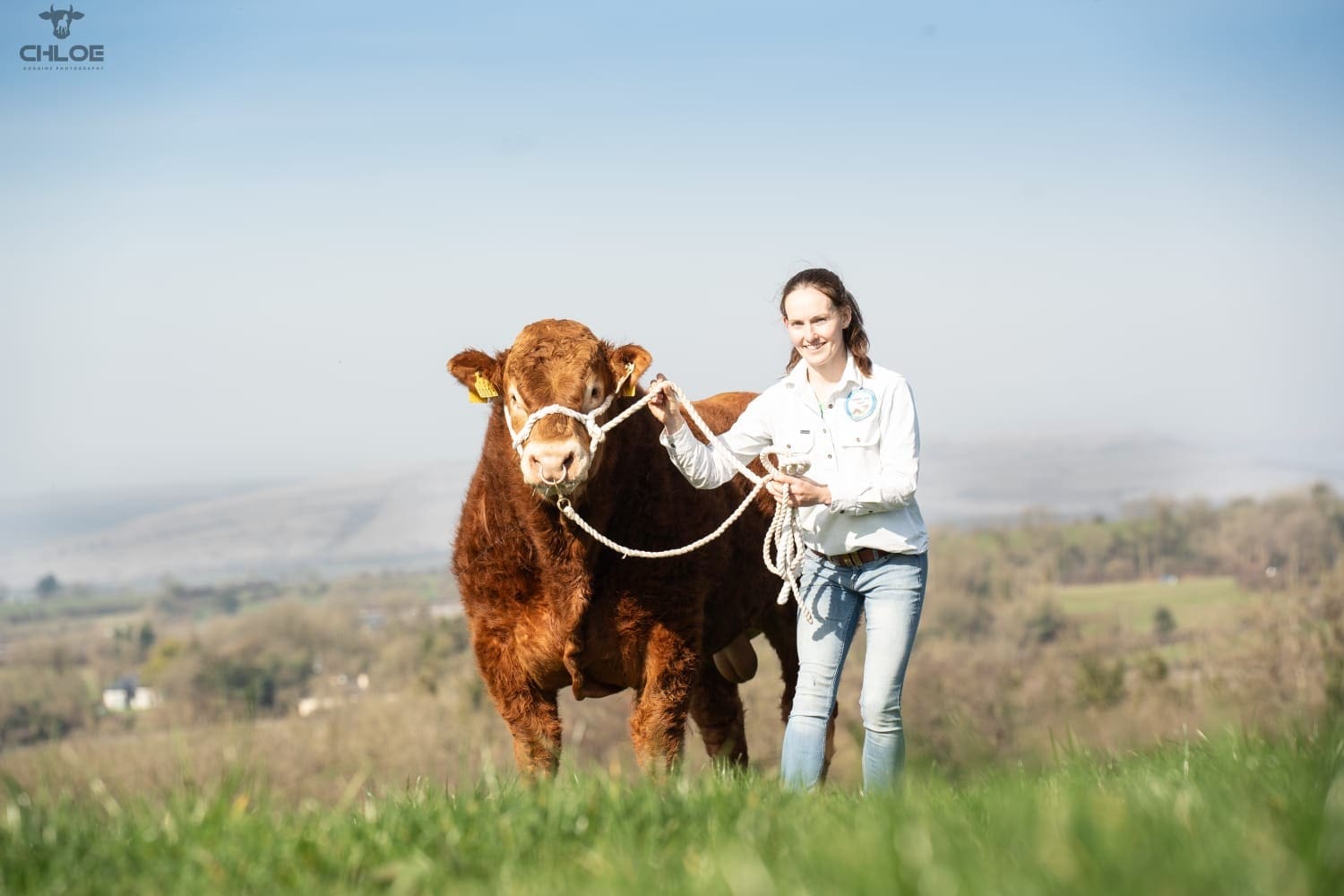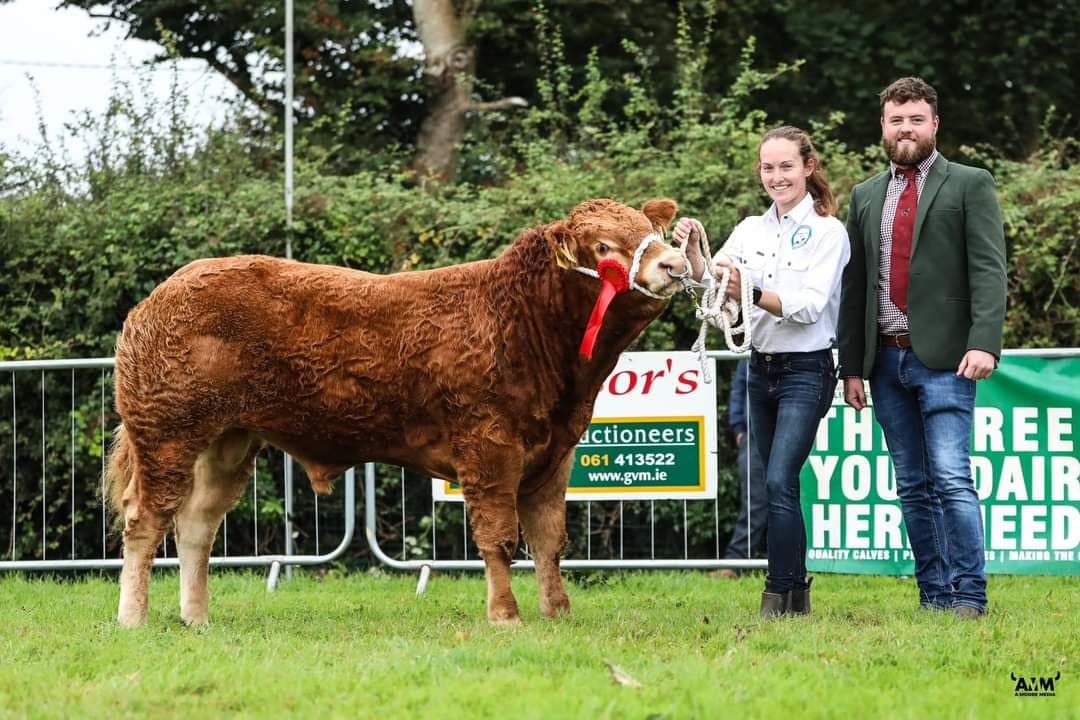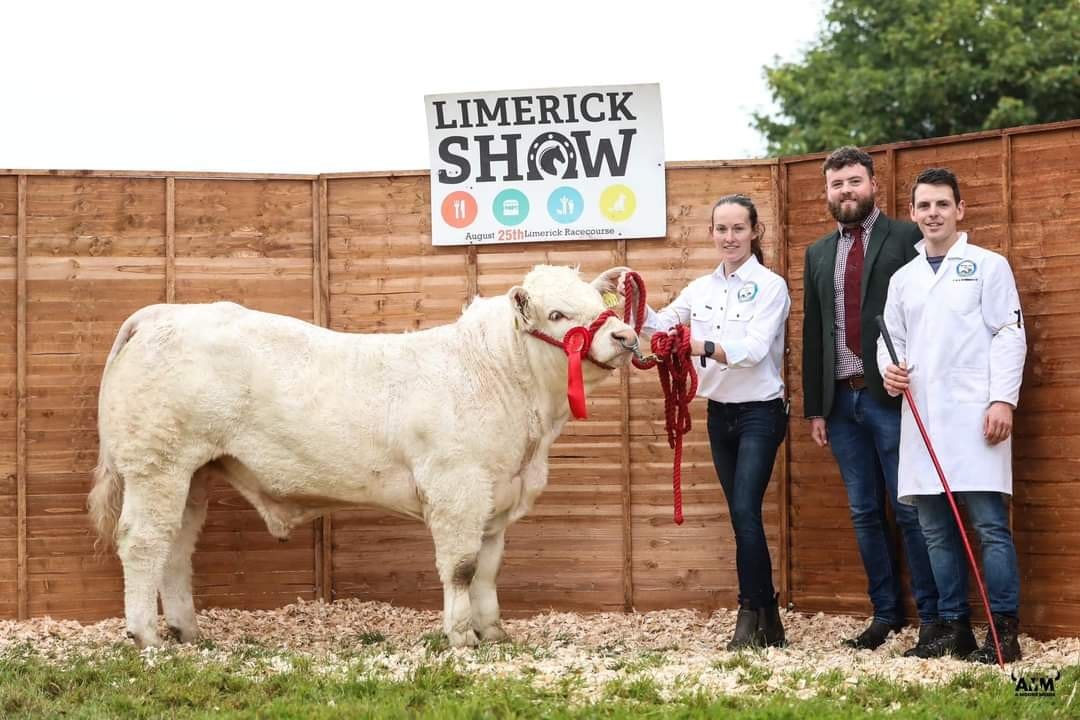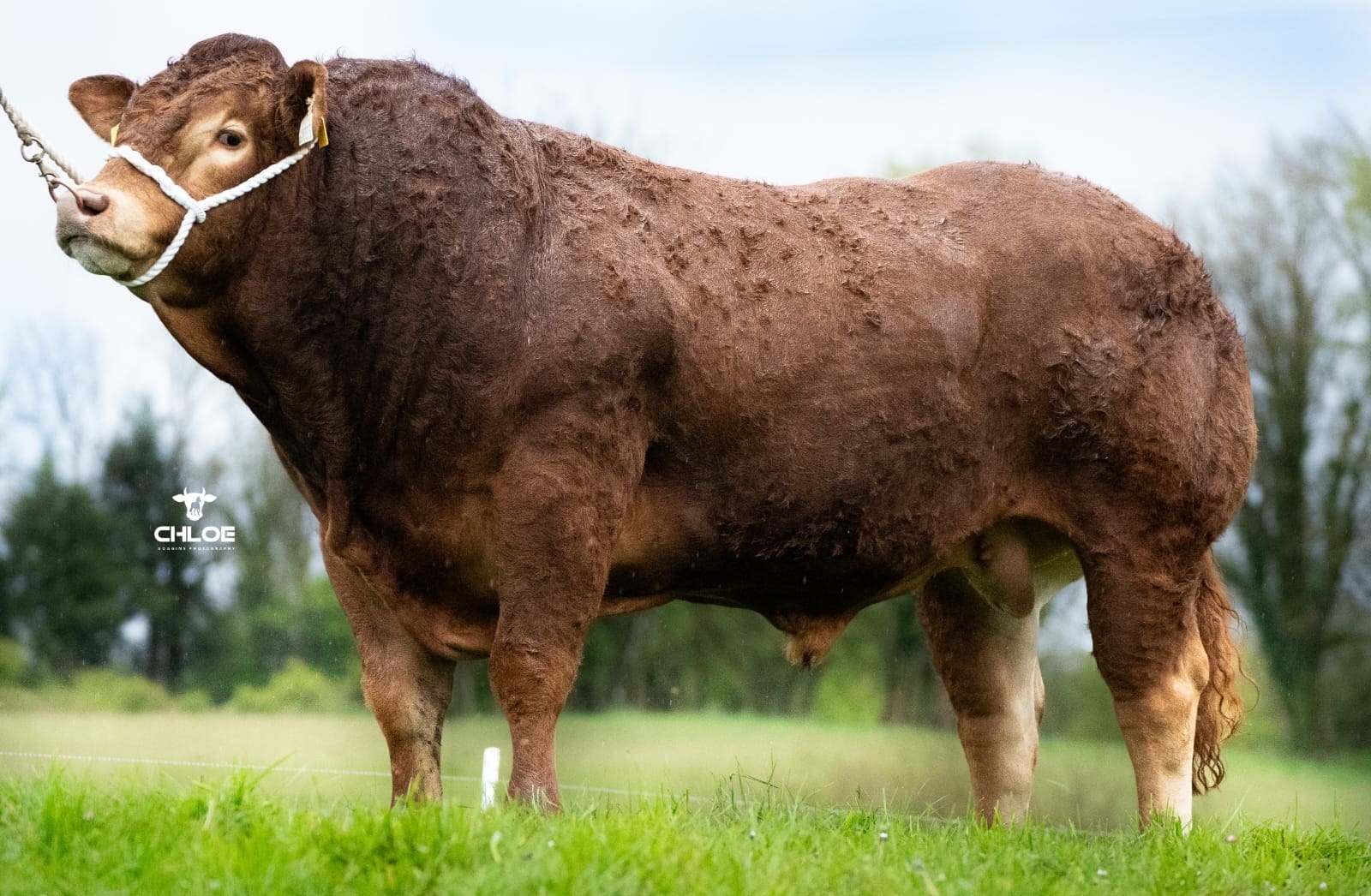Effectively Mixing the Traditional with the Modern
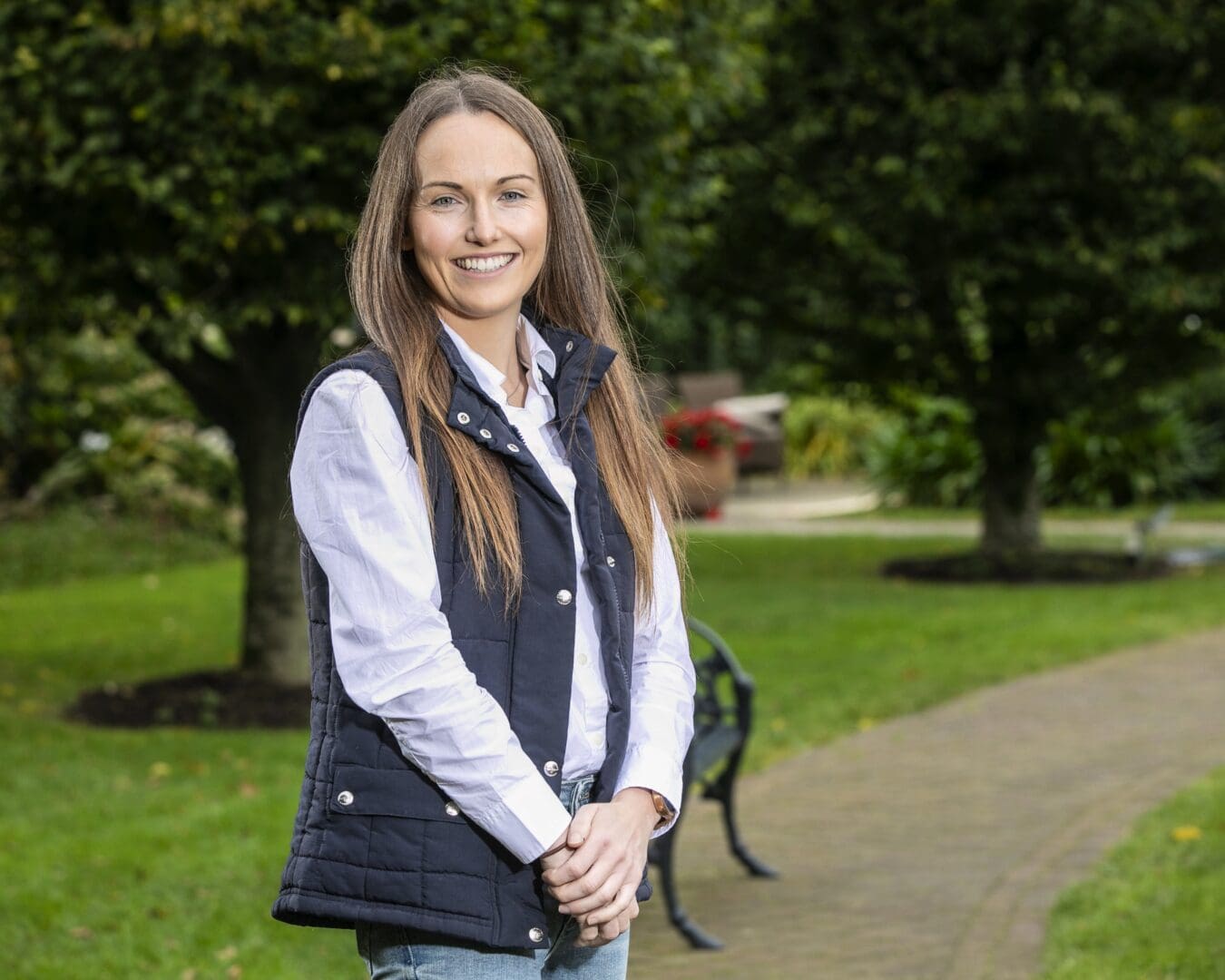
Name:
Carina Roseingrave
Location:
Crusheen, Co. Clare
Farm Type:
Dairy, Beef and Eggs (Burren View Farm)
Farm Size:
141 Hectares (350 acres)
1. Overview of Carina Roseingrave
Carina Roseingrave is a full-time farmer on a mixed farm at the foothills of the Burren in Co. Clare. She is in a Formal Farm Partnership with her brother Gerry. They became new entrants to dairy farming 7 years ago and currently milk approximately 100 cows. They also manage a herd of 50 pedigree suckler cattle.
Carina recently participated in the ACORNS programme which has helped her to develop her hen egg business; Burren View Farm Eggs. The farm is registered in ACRES and SCEP and investments are being planned with support from TAMS. Carina also owns an after-school service in the nearby village of Tulla.
2. Introduction
Carina has been farming for almost as long as she can remember and her family have always been suckler farmers. Tragically their father passed away in 2002 when Carina was just 12 years old. This left their mother to raise 5 children under the age of 12, while also juggling a suckler farm and her day job in Clare Marts in Ennis. Carina remembers herself and her siblings helping out wherever they could. “We all did our bit over the years. Myself and Gerry were the most heavily involved and we continued the farming.”
Dairy farming was far from their minds when they took over the farm from their mother until a neighbour offered to sell them a 127 acre (51 hectare) block of land next door to the home farm. They decided to buy it but while Carina was wondering what they were going to do with the land, a plan was already forming in Gerry‘s mind. “Gerry said we’ll go into dairy. I had never milked a cow before, but he was in New Zealand on a dairy and tillage farm at the time.“
“We all did our bit over the years. Myself and Gerry were the most heavily involved and we continued the farming.”
A lot of investment was needed, with water and road infrastructure at the top of the list. They had a 4 bay double shed in the yard that was suitable for accommodation but another shed had to be converted into a milking parlour. “It was just before the heifers started calving that we got the milking parlour working. None of us knew how to operate it,“laughs Carina, “but after a week we got the hang of it and now I wouldn’t want to do anything else.“
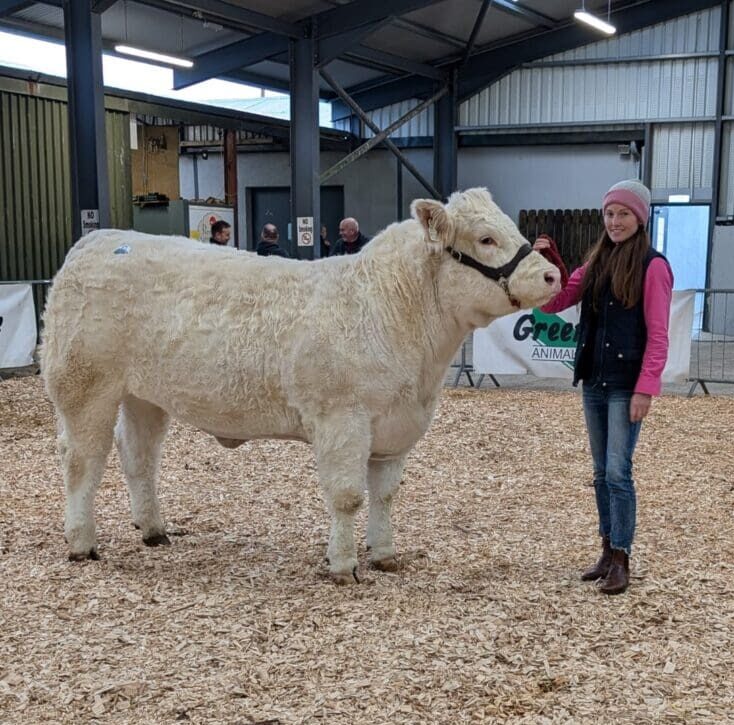
3. Continuous Farm Investment
The Roseingraves have since used the Targeted Agriculture Modernisation Scheme (TAMS) supports to invest in a larger refrigerated bulk tank for their expanding dairy herd. An application is currently being processed for a backup electrical generator and a Low Emission Slurry Spreading vacuum tanker.
They also plan to avail of Carina‘s presence in the partnership to apply for 60% support in the Women Farm Capital Investment Scheme to build a modern shed for their valuable suckler herd on an outside block of land.
4. Developing the Suckler Herd
The suckler herd comprises of pedigree Limousin and Charolais cows and Carina is working towards breeding 5 star bulls to sell. Toffeepop, a bull from their Burren View Farm herd, came second at the Tullamore Show in 2023. In 2024, Carina bought a top pedigree Charolais cow whose sire was Jaquard, a former Scottish Highland show champion.
Four of fifteen successfully harvested Grade 1 embryos from this cow have been inseminated by top French bull Magicien and are now implanted into heifers from the dairy herd.
There are no guarantees but if successful, Carina hopes to breed a whole new line of top quality Charolais genetics for the Irish market. “We always have a plan here,” she says. The herd is currently registered in the Suckler Carbon Emission Programme (SCEP).
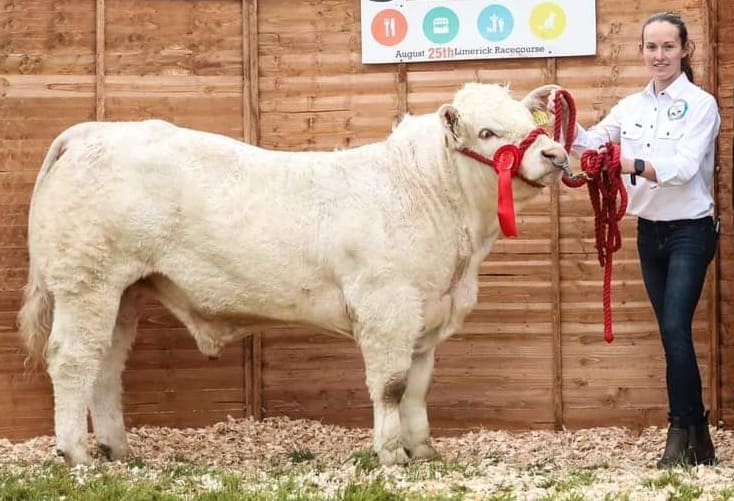
5. Developing Burren View Farm Eggs
In 2020 when Covid struck and her afterschool business was forced to close, Carina decided to buy 50 hens. “We were selling the eggs at home with an honesty box on the side of the road. The numbers started to double and triple and get bigger. It has turned into a bit of a business now.“
It was a chance encounter at the National Ploughing Championships in 2023 when everything changed for Carina and her farm business. A shower of rain forced Carina and her sister to step into a random tent for shelter. They found themselves in the ACORNS tent and after speaking to the staff and getting encouragement from her sister, Carina ended up enrolled in the 2024/2025 ACORNS programme.
6. ACORNS: Support for Rural Female Entrepreneurs

The ACORNS programme is celebrating 10 years of supporting early-stage female entrepreneurs living in rural Ireland in 2025. Carina credits the programme for providing her with the assistance she needed to start running her farm like a business. She admits that she had misgivings on her first day on the programme in Mullingar. “In my head I thought this was for people who had a business idea or a product to sell,“admits Carina.
Although she had enjoyed the morning session, by lunchtime she was still thinking “I should not be here. I’m a farmer from the west of Ireland. I’m an imposter!“ It was at the afternoon roundtable session when she realised what ACORNS could offer her and she has never looked back: “I stuck to my guns and it was the best six months ever because I realised that I should operate the farm as a business. On a farm you just do everything because that’s always how you did it, but I took a step back and had a look from the outside in. I started to put in protocols.“
A change in the communication of information on the farm is an example of this new management mind-set. Previously Carina and Gerry could rarely leave the farm because all the information was inside their heads and could not be shared easily with relief workers. To overcome this, Carina installed whiteboards in all the farm buildings to record and share information to whoever is working on the farm on any given day and this has allowed them to take more time off.
“Before ACORNS, I would never have looked at the farm as a business, whereas now I do. Now I’m always coming up with a new idea that I would like to do because ACORNS allowed me to see that ideas can be about a lot more than just milking cows.”
“Before ACORNS, I would never have looked at the farm as a business, whereas now I do. Now I’m always coming up with a new idea that I would like to do because ACORNS allowed me to see that ideas can be about a lot more than just milking cows.”
The skills she has developed in marketing, business planning, cashflows and product development will stand to her for years to come. Would she recommend ACORNS to other rural women? “Definitely. Paula Fitzsimons (Managing Director) is one amazing woman and it’s massive that the Department of Agriculture, Food and the Marine (DAFM) are supporting rural women.“
7. Developing a Local Food Business
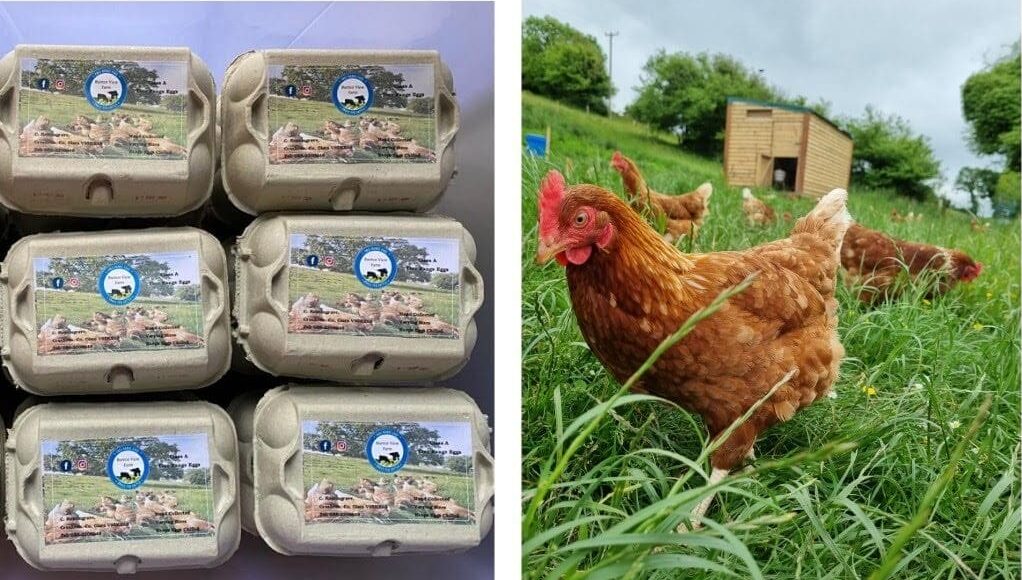
A modern purpose-built shed has since been built and registered with DAFM and her flock has moved in. The demand is huge and while she is still relying on the honesty box to sell most of her eggs, Carina has plans to expand both her flock and her markets soon. She intends to eventually build a bigger shed while continuing to sell her eggs locally and keeping her flock free-range: “No matter how big it gets, I still want sustainability and the welfare of my hens at the heart of it”.
Carina believes more people want to source their food locally since the pandemic: “People like to see the local product and to see where it is coming from. A lot of parents have said that their child would never eat an egg but now they will because they know it comes from Burren View Farm. I always put posts on Instagram showing me collecting the eggs and people said that it has made such a difference because they can see where the food is coming from.“
The rest of the eggs are sold to shops and cafes within a 30-mile radius of her farm. She often fits deliveries in while on the school run with her daughters. “It’s a very eco-friendly way of doing deliveries, killing two birds with the one stone.“
8. Protecting Biodiversity
The Roseingraves‘ commitment to sustainability extends to the management of a 28 ha (70 acres) Special Area of Conservation (SAC) native woodland on their farm. It had previously been managed under the Burren LIFE programme and is now registered in ACRES. Just like countless generations of farmers before them on this land, they are using their suckler cows to continue the ancient practice of controlled grazing to ensure that important flora species do not become crowded out by hardier plants and become extinct.
“You have to let it be grazed, otherwise it will go wild,“ explains Carina. “There are pockets of grassland mixed in with the woodland. There are also streams and caves in there. Through ACRES we are currently getting it fenced.“ Carina is proud of the biodiversity on her farm. “Do you hear the birds? I love that. That’s what we wake up to every morning,“ she says smiling. This wood is connected to the nearby Dromore Wood Nature Reserve and all the streams in this area eventually flow through Ennis town so protecting water quality is very important for her.
9. Conclusion
Burren View Farm is a wonderful mix of the traditional and the modern. The commitment to biodiversity and traditional land management practices fit easily alongside innovative ways of developing a modern farm business. Carina‘s plans for the farm are not finished yet as she considers opportunities to sell milk directly to local customers and to eventually develop a farm tourism business. When asked if she ever gets tired, the answer from Carina is a firm “no“, such is her enthusiasm for her farm and what she has achieved so far in partnership with her brother Gerry.
The skills and ideas gained from participating in the ACORNS programme have helped them to channel their energy and vision into continually diversifying markets for their various farming enterprises. With the foresight to fully utilise supports available under the CAP Strategic Plan 2023-2027, financial and environmental sustainability for Burren View Farm is being secured for this current generation and the next.

